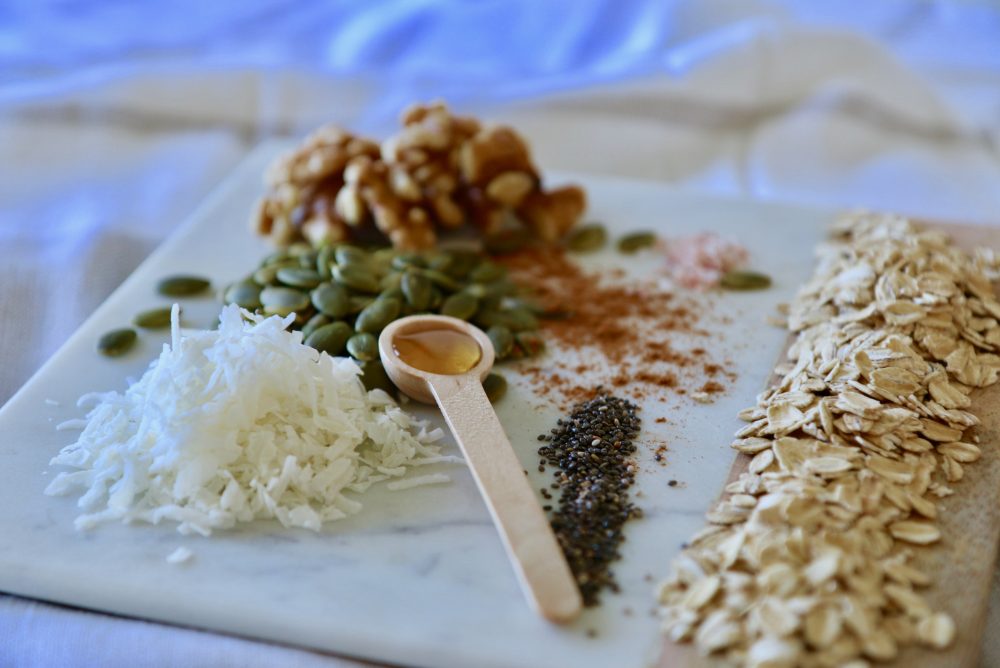
Here’s the thing: granola is pretty addicting and it makes sense why. Traditional packaged recipes have loads of fructose, concentrated sugar from dried fruits, and saturated fats from palm or hydrogenated vegetable oil. Not to mention the taste and texture is almost impossible to resist; it’s crunchy, sweet, salty, & easy to snack on.
We love this granola because it’s jam packed with fiber and plant protein, hosts super healthy fat from the nut and seed combo, and boasts a terrific flavor profile from the orange infused maple syrup.
The sensory experience of eating plays an integral role in the pleasurability of food and contributes to our food intake. Our taste receptors recognize five categories within food: salty, sweet, bitter, sour and umami. In addition to taste sensor stimulation, texture is thought to influence our satisfaction from food. (Think about the addictive nature of crunchy chips or the cooling satisfaction from a thick milkshake). As you begin to prep and cook more foods at home, you’ll notice that real food tastes different than processed food. Food’s taste and texture is an indication of quality and freshness.
This granola is noticeably less sweet than commercial brands. By using just ¼ cup maple syrup and eliminating dried fruits we drastically reduce the sugar content without sacrificing taste. You’ll notice the orange zest is fragrant and slightly floral. The gently baked pumpkin seeds are crunchy and crisp; the walnuts are slightly sweet. Adding the coconut in the last stage of baking releases the essential oils from the coconut meat, allowing it to caramelize without burning.
Sensory influences on food intake control: moving beyond palatability. Etiology and Pathophysiology K. McCrickerd1,2 and C. G. Forde1,2,3. doi: 10.1111/obr.12340
Impact of obesity on taste receptor expression in extra-oral tissues: emphasis on hypothalamus and brainstem. Scientific Reports 6, Article number: 29094 (2016) doi:10.1038/srep29094
Pumpkin seeds are a nutritional powerhouse. This superfood is extremely rich in magnesium, a coenzyme that facilitates metabolic and physiological reactions in the body. Pumpkin seeds are high in zinc and manganese minerals, and also contain a wide variety of bioavailable forms of vitamin E which is a powerful antioxidant.